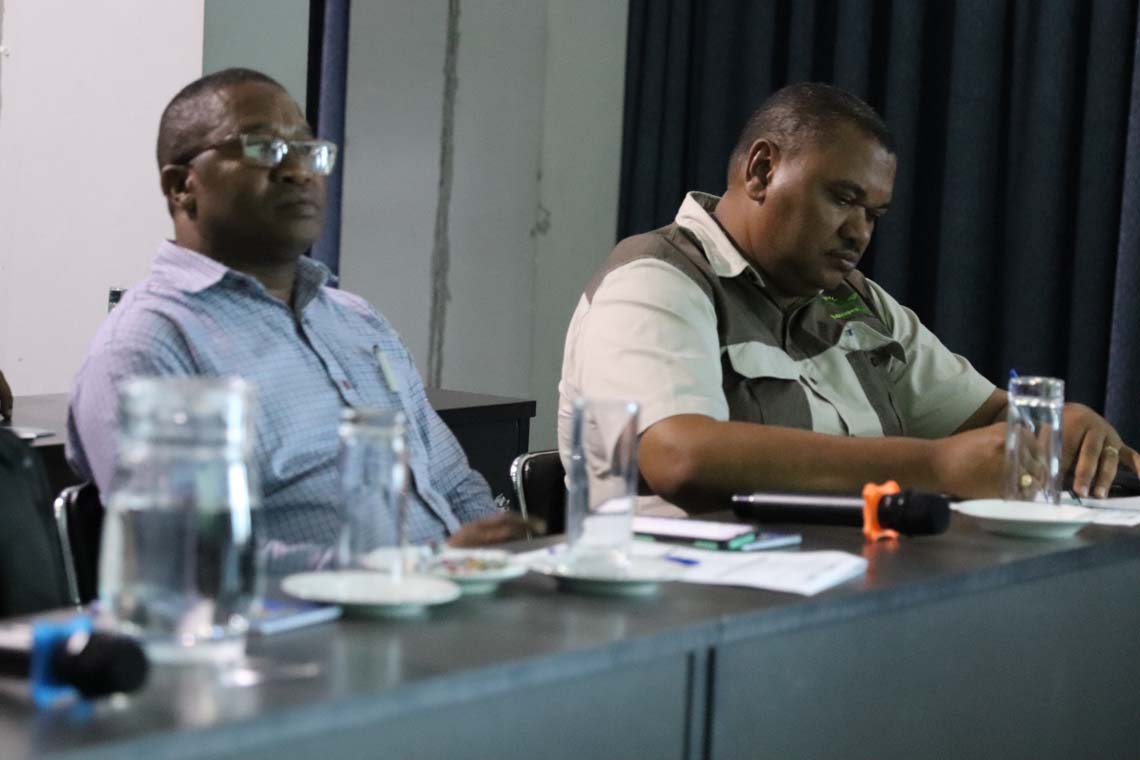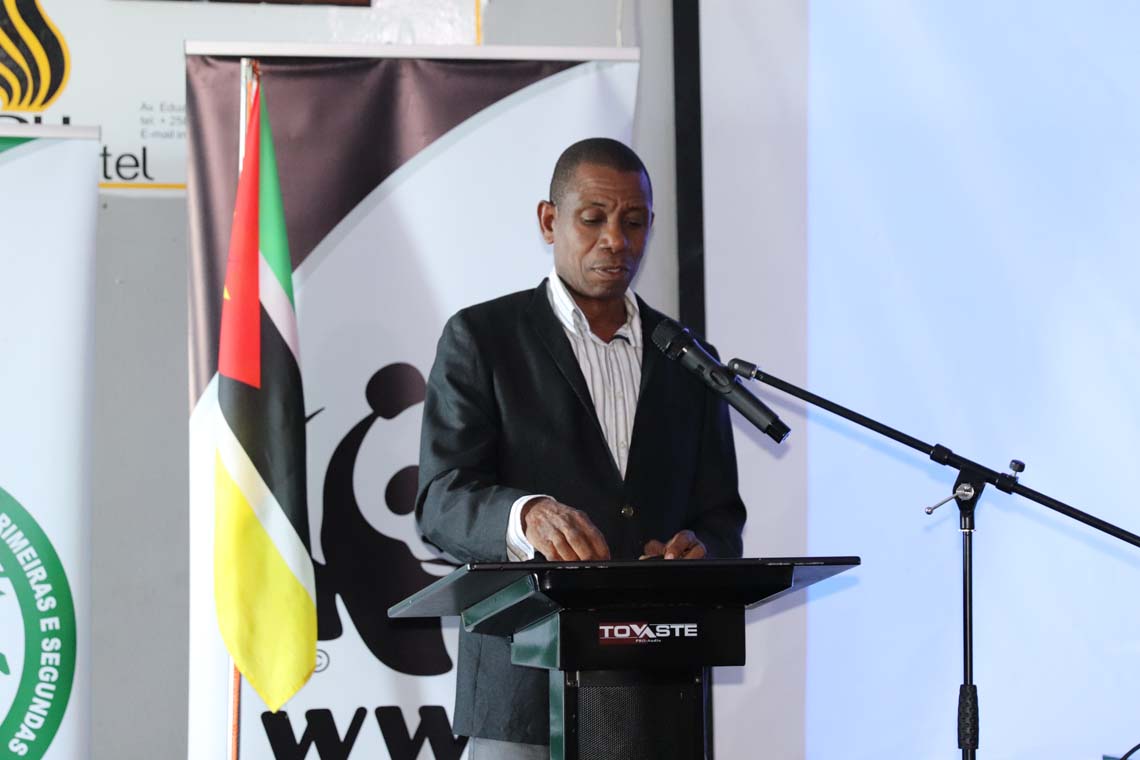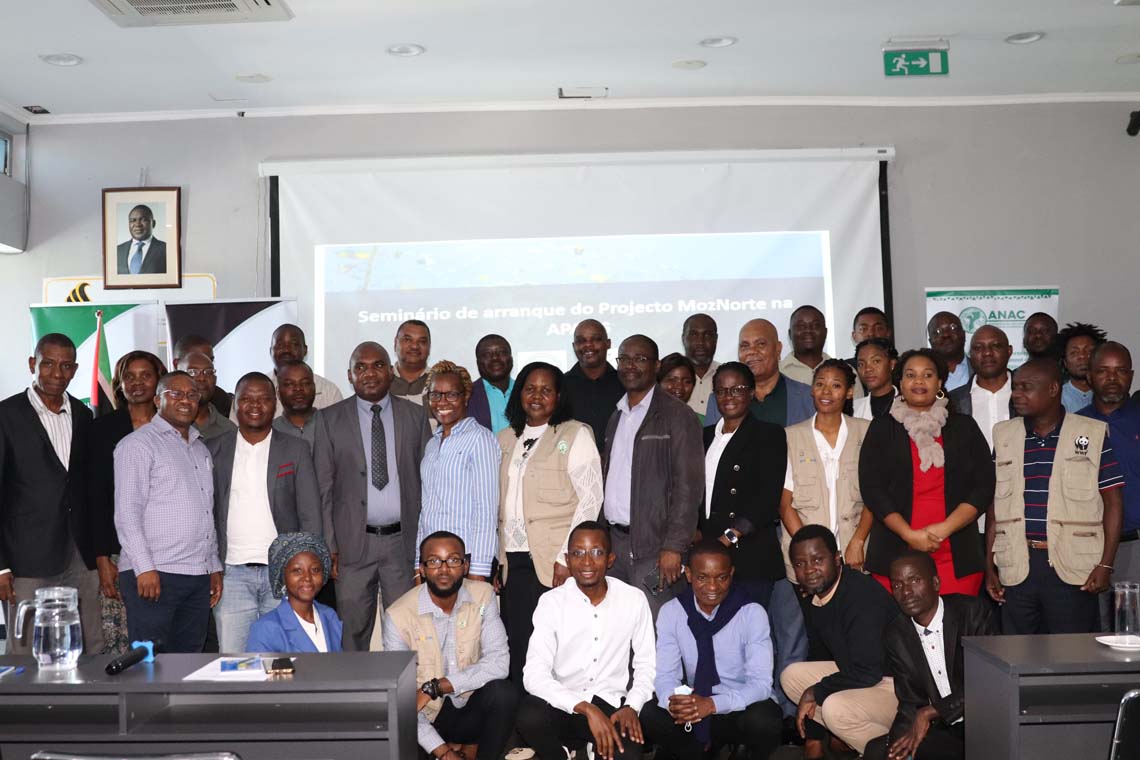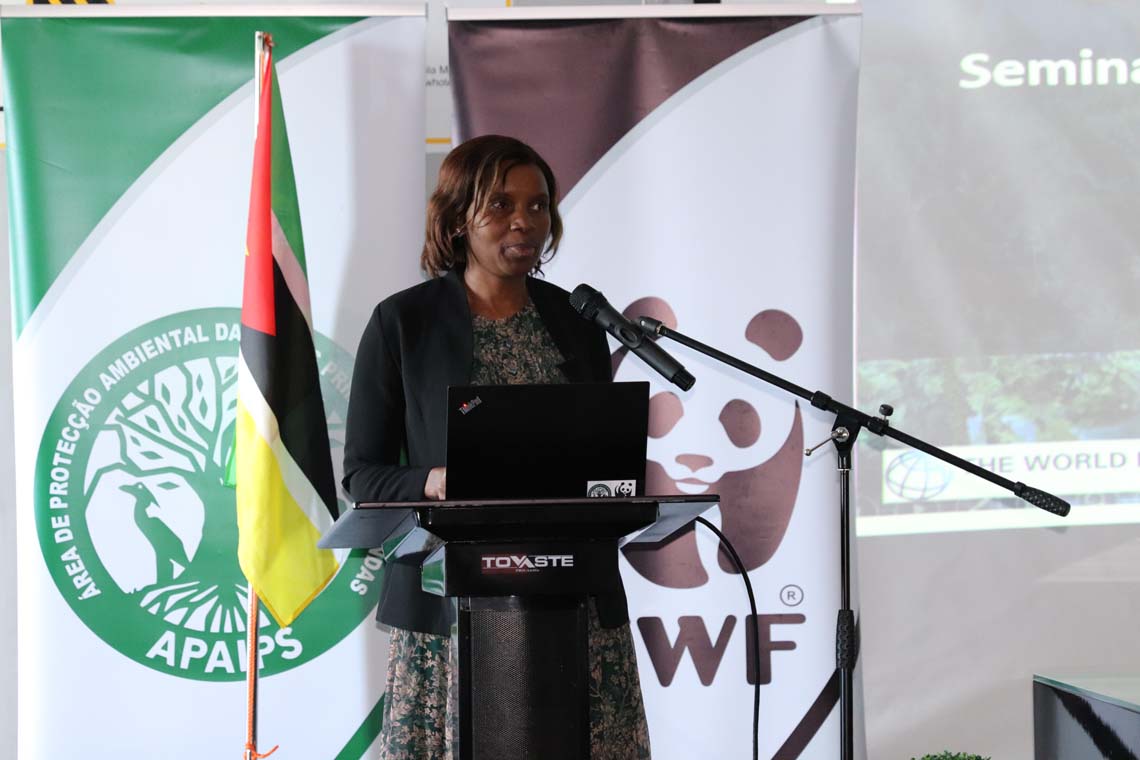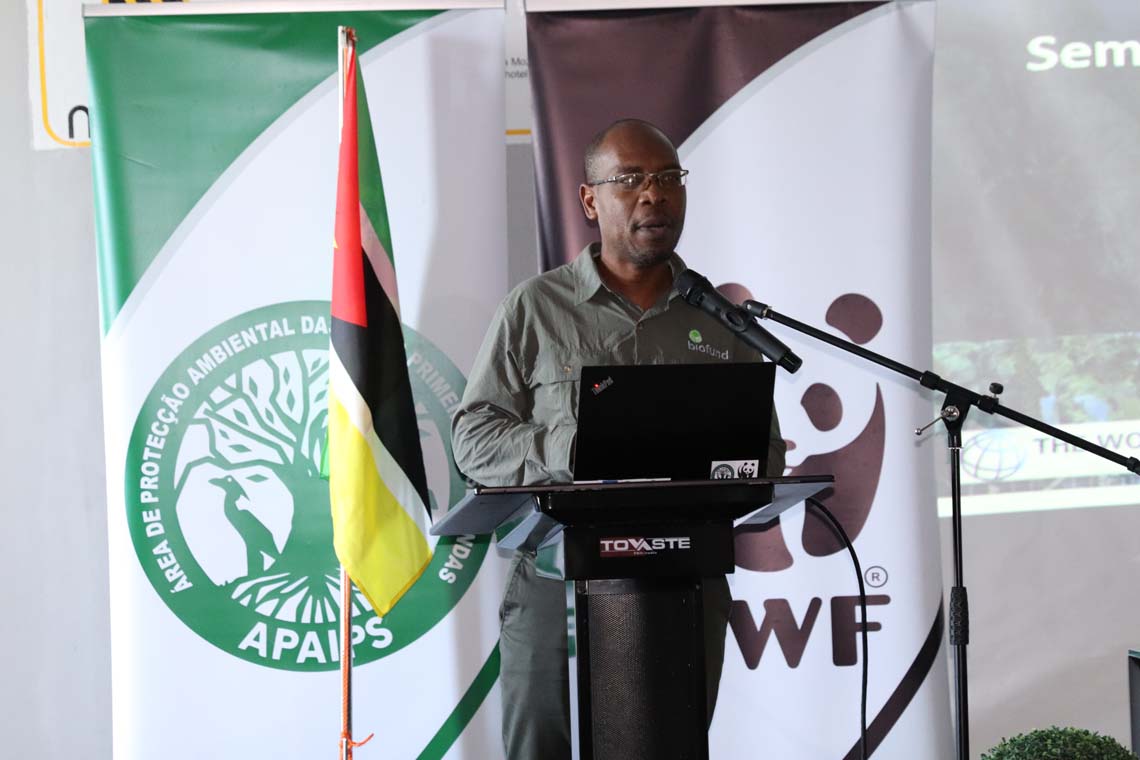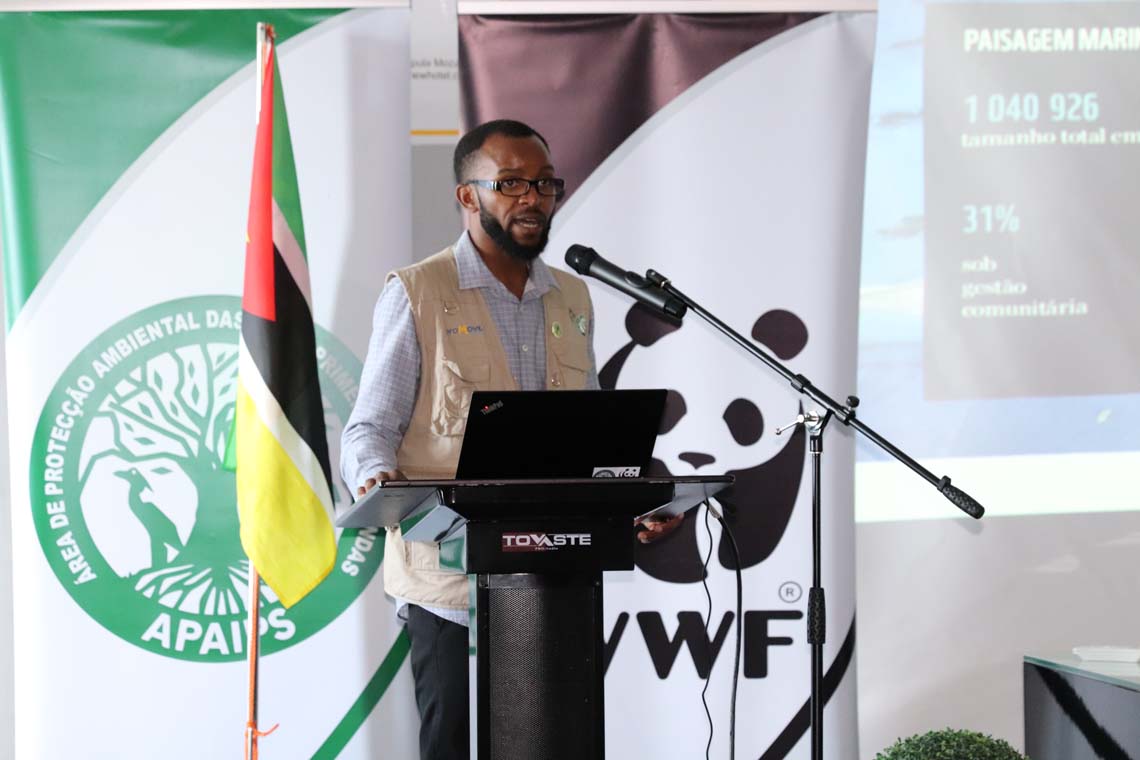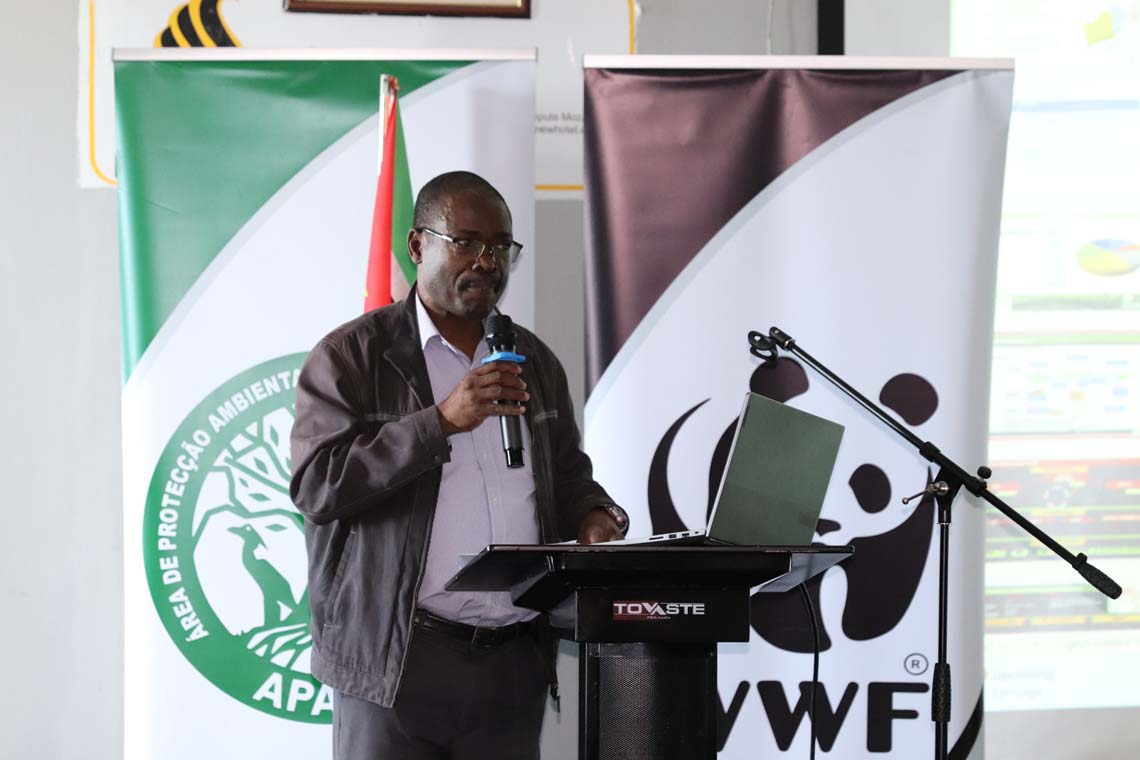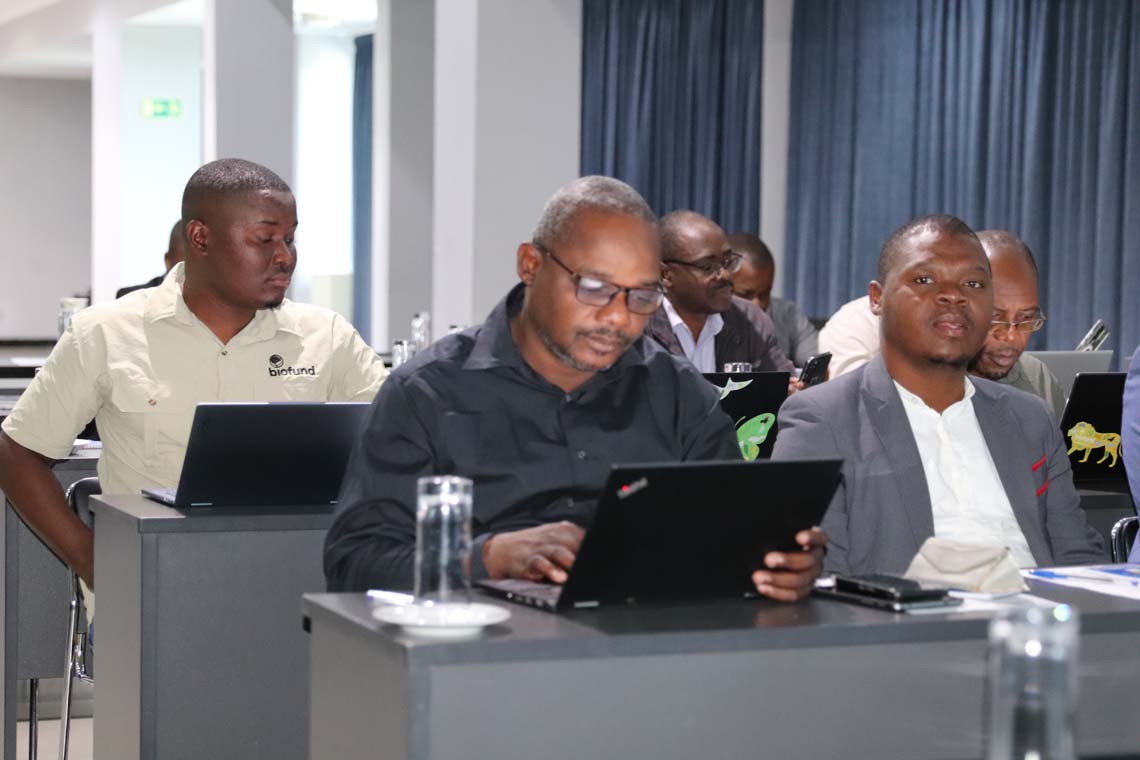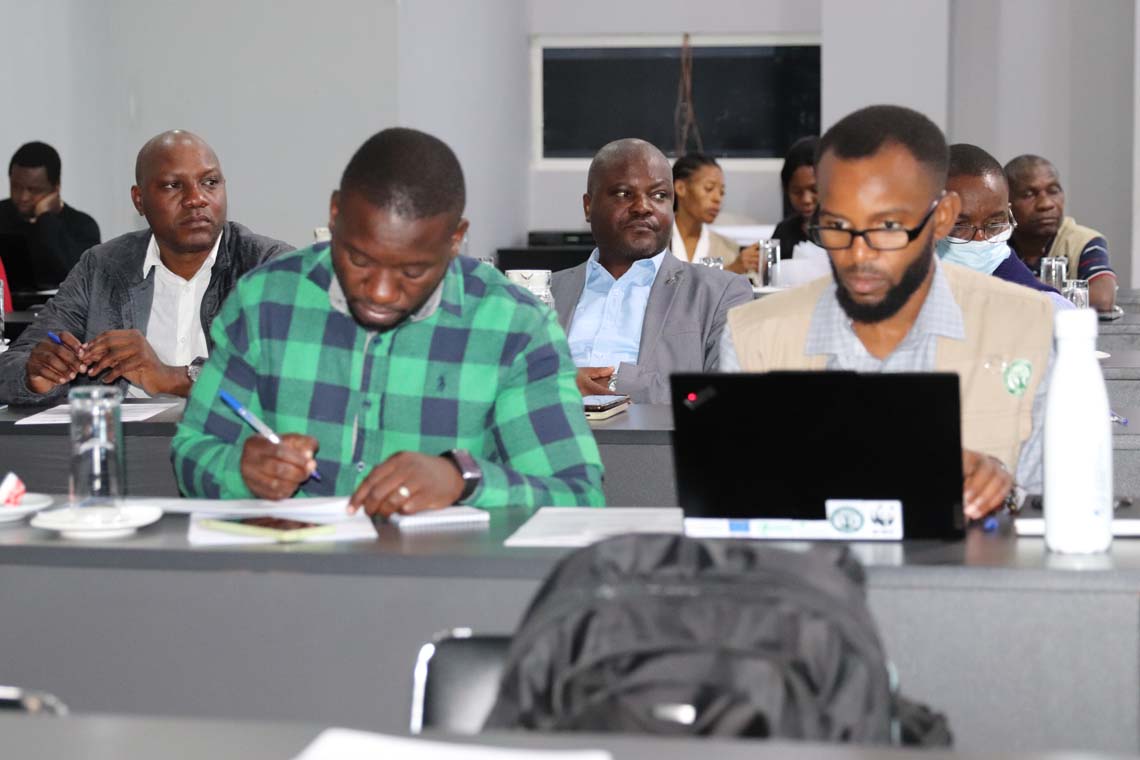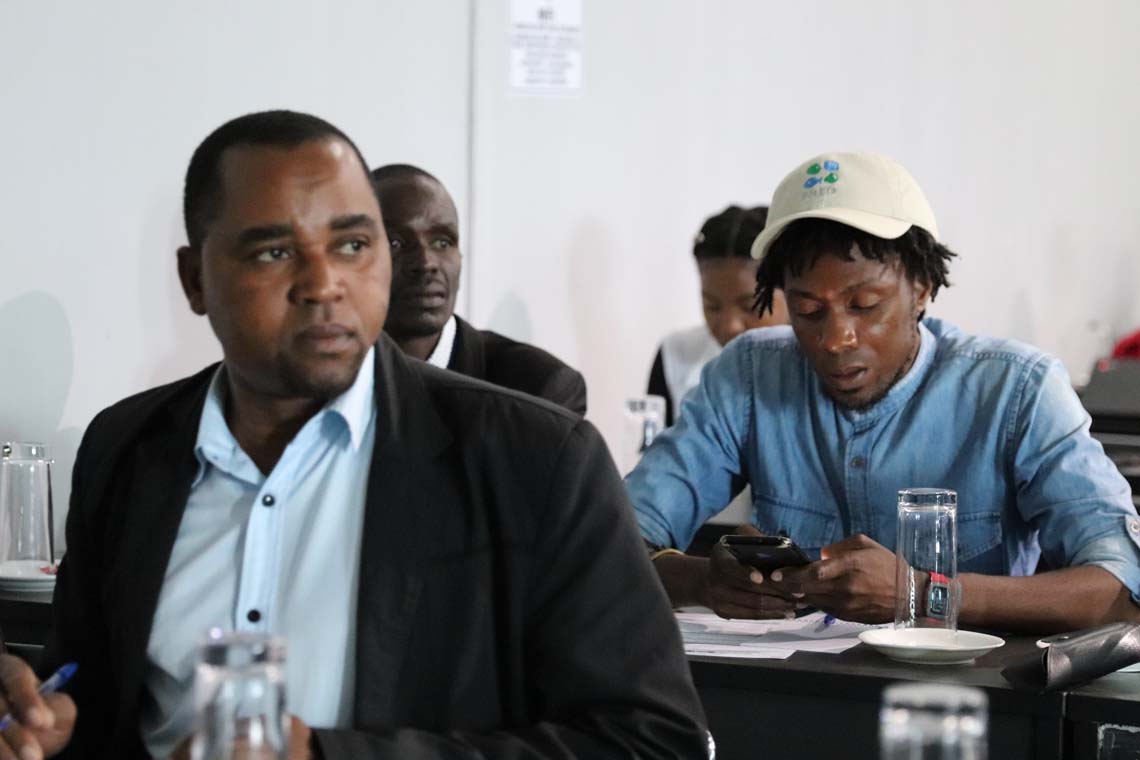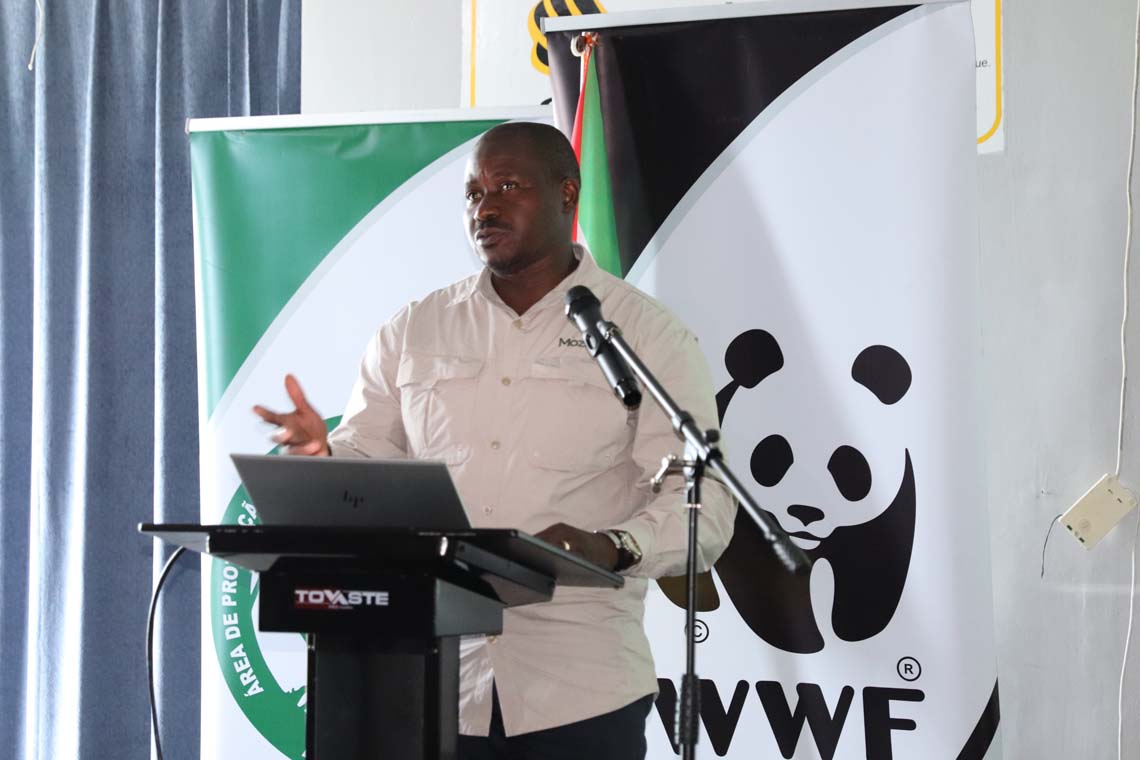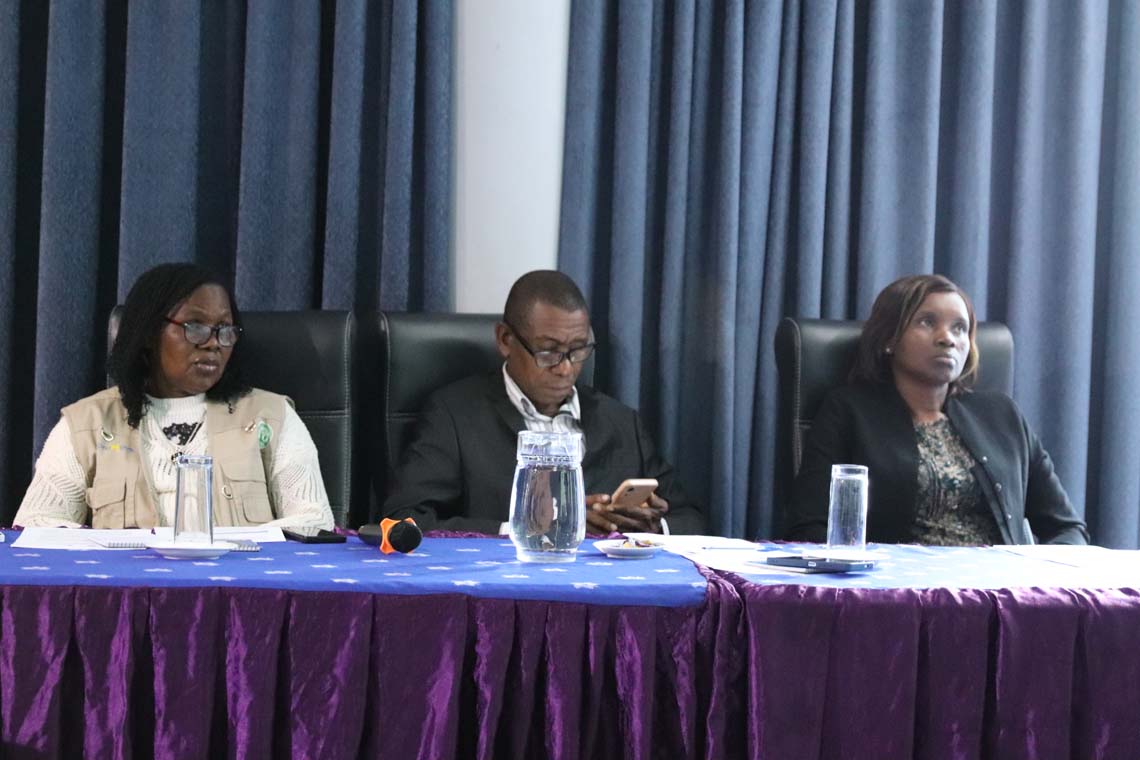On 27 June, the kick-off seminar of the Rural Resilience Project in Northern Mozambique – MozNorte, took place in the city of Nampula, for the Environmental Protection Area of the Primeiras and Segundas Islands (APAIPS). This event, part of the MozNorte Project, is financed by the World Bank through the Foundation for the Conservation of Biodiversity (BIOFUND) and is supported by the Government of Mozambique.
Published at 03/07/2024
Rural Resilience Project Launched in Northern Mozambique in the Primeiras and Segundas Islands
The event was attended by more than 50 guests, including representatives of the Government of Nampula Province, the National Administration of Conservation Areas (ANAC), district administrators from Larde, Moma and Angoche, technical and vocational training institutes of Nampula Province, and members of several organisations such as the World Wide Fund for Nature (WWF), Rare, the National Fund for Sustainable Development (FNDS) and BIOFUND. Notable attendees included Ali Auasse, representative of the Government of Nampula Province, and Ricardina Matusse, Administrator of APAIPS.
With a duration of 34 months and a total funding of USD 1.7 million, the project will be implemented by WWF-Mozambique, in close coordination with the APAIPS administration. The main objective is to strengthen sustainable natural resource management, promote environmental education and provide technical training to local communities. Among the main goals of this project are the creation of an effective governance framework, improvement of tools and management plans, and strengthening law enforcement within APAIPS.
Integrated within the MozNorte Project, which will run until 2026, the project covers essential areas such as agriculture, rural development, conservation and fisheries, aiming to improve the livelihoods of vulnerable communities in the provinces of Cabo Delgado, Niassa and Nampula.
During the seminar, project coordination mechanisms and the formation of the Advisory Committee structure composed of various public and private institutions, were discussed. The proposed activity plan and project implementation methodologies were also addressed.
One of the highlights was the presentation of the Technical and Vocational Education Scholarship Programme, which benefits 35 adolescents and young people from the districts of Angoche, Moma and Larde. In addition, an induction session on Environmental and Social Safeguards was conducted, highlighting key concepts, areas of action and operational procedures.
The event concluded with a summary of the discussions and the presentation of the proposed action plan, reaffirming the commitment of all involved to biodiversity conservation and sustainable development within APAIPS.

